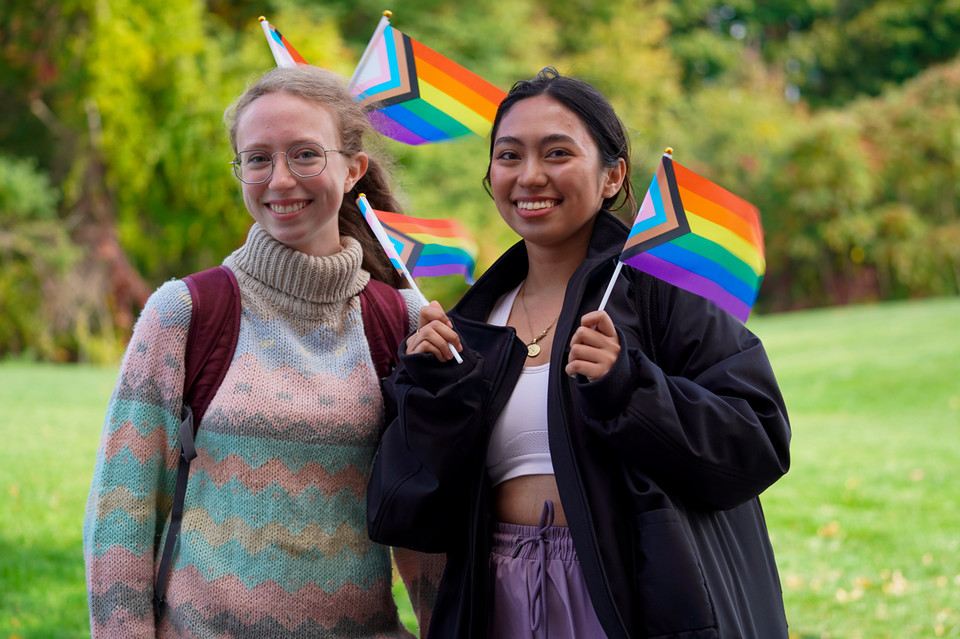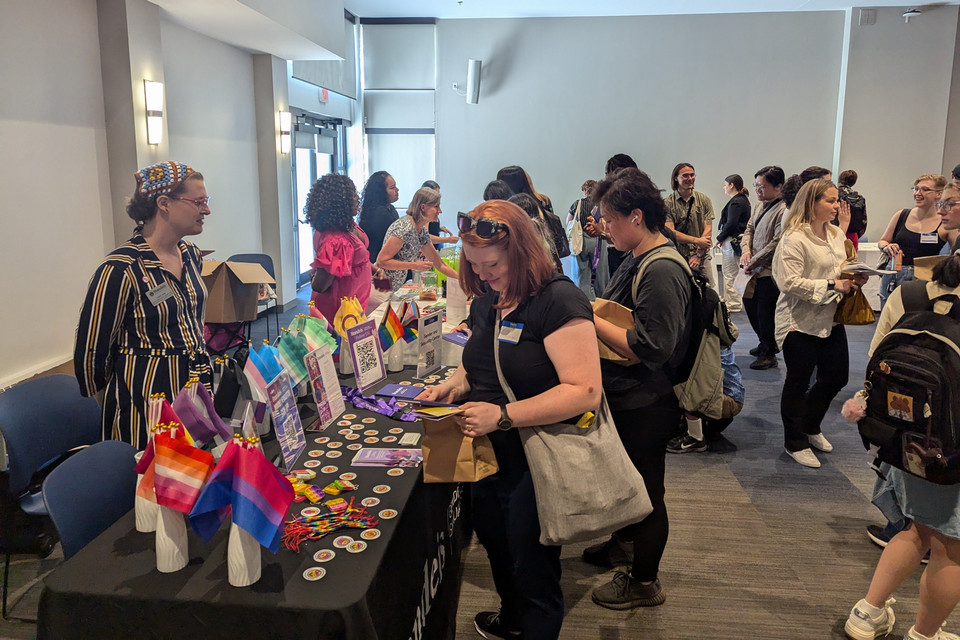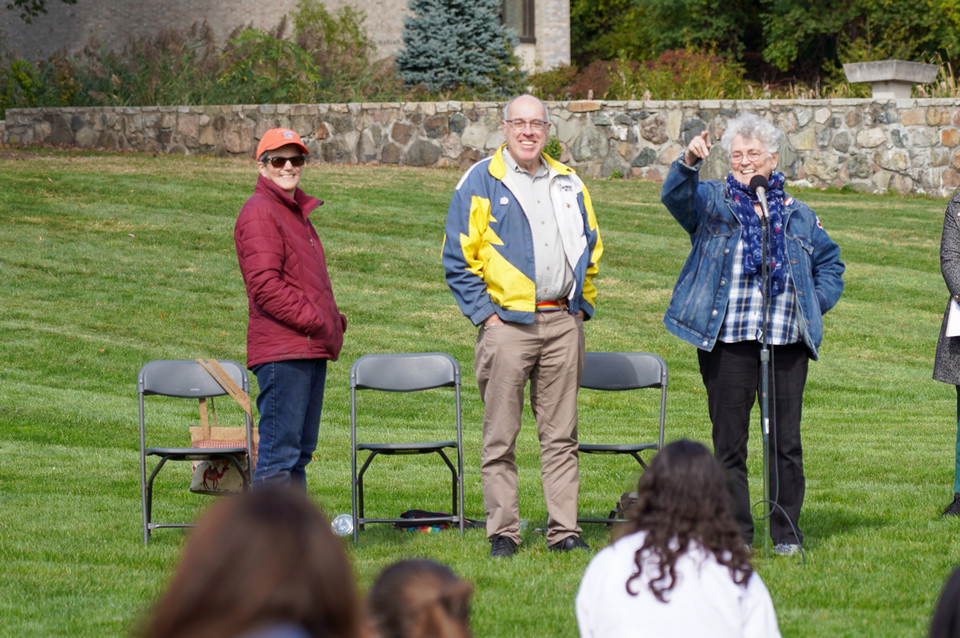Who We Are
The Gender and Sexuality Center (GSC) is a professionally staffed resource center and an office of the Division of Diversity, Equity, Inclusion, and Belonging for all Brandeis students interested in LGBTQIA2S+ and other issues related to gender and sexuality. We are open Monday through Friday from 9am to 5pm, excluding University holidays.
Our Vision
The vision of the Gender and Sexuality Center is to serve as the focal point for:
- all gender and sexuality-related support resources on campus
- promoting LGBTQIA2S+ communities through student learning and community building
Our desire is for everyone at Brandeis University to thrive in their pursuit of academic excellence.
What We Do
Our trained staff:
- Meet with students one-on-one for general advising and guidance
- Meet with faculty and staff members to share best practices for supporting LGBTQIA2S+ students and colleagues
- Host annual signature events in order to build community and advance learning
- Facilitate conversations on Gender and Sexuality
- Connect folks to campus, local, and national resources
- Provide a safer lounge and meeting space
- Provide drop-in therapy in partnership with the Brandeis Counseling Center's Community Therapy Program
- Host support groups:
- Queer Survivorship - in partnership with PARC
- Transcend - in partnership with the Brandeis Counseling Center
- Spirituality, Identity, & Mental Health - in partnership with the Center of Spiritual Life
- Organize a clothing donation program
- Advise and support several Brandeis student clubs and organizations
Signature Events
Gender and Sexuality Center Open House
Hosted at the beginning of each new academic year. Check out the GSC, learn about our resources, make new friends, and enjoy some tasty treats and fun activities! All are welcome!
Coming Out Day
Celebrated in October, the GSC typically invites speakers to educate the campus about LGBTQ+ identities and topics while providing a variety of activities and resources. All are welcome!
DEIS Impact
In partnership with the Intercultural Center, we host a multi-day educational event in March! Featuring keynote speakers, informative panels, workshops, and tons of educational experiences. All DEIS Impact programs and events are open to everyone! Learn more at the DEIS Impact website.
Lavender Celebration
Every year in May, we gather to celebrate the accomplishments of seniors who have been involved with the Gender and Sexuality Center or are interested in the LGBTQIA+ community. All are welcome to participate across campus. Friends and families are also invited!



